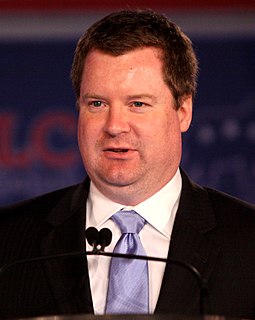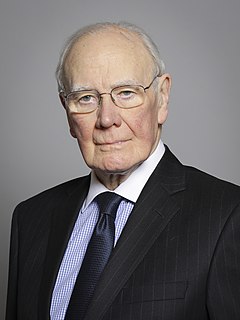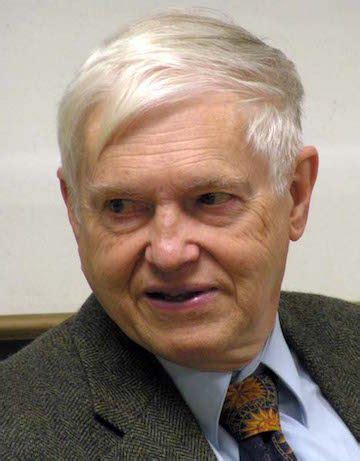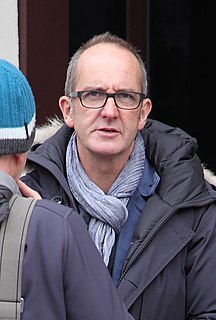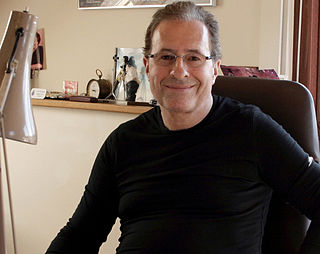Top 991 Carbon Dioxide Quotes & Sayings - Page 15
Explore popular Carbon Dioxide quotes.
Last updated on December 4, 2024.
Becoming carbon neutral is only the beginning. The climate problem will not be solved by one company reducing its emissions to zero, and it won't be solved by one government acting alone. The climate problem will not be solved without mass participation by the general public in countries around the globe.
By the time we see that climate change is really bad, your ability to fix it is extremely limited... The carbon gets up there, but the heating effect is delayed. And then the effect of that heat on the species and ecosystem is delayed. That means that even when you turn virtuous, things are actually going to get worse for quite a while.
Subsidies for the oil, gas and coal industries are projected to cost taxpayers more than $135 billion in the coming decade. At a time when scientists tell us we need to reduce carbon pollution to prevent catastrophic climate change, it is absurd to provide massive subsidies that pad fossil-fuel companies' already enormous profits.
We now know that climate action does not require economic sacrifice. This is fully in line with the World Bank Group's findings. It is up to all of us to make smart policy choices that will help combat climate change. For example, putting a price on carbon is a necessary step and could drive resources and investments to a cleaner economy.
People in low-lying countries like Bangladesh with almost 140 million people who are managing to feed themselves, whose carbon emissions can't really be calculated (they are a rounding error in the UN's attempts to do national comparisons), and yet, most of whose people are at risk from increased flooding due to rising sea levels.
We need healthy forests if we want to protect our climate. As the climate changes, forests become more vulnerable to insect outbreaks, droughts and wildfires. Simultaneously, when our forests are destroyed, their carbon is released back into the atmosphere, further impacting climate change. It's a horrifying one-two punch.
Nevertheless, just as I believe that the Book of Scripture illumines the pathway to God, so I believe that the Book of Nature, with its astonishing details-the blade of grass, the Conus cedonulli, or the resonance levels of the carbon atom-also suggest a God of purpose and a God of design. And I think my belief makes me no less a scientist.
There are skeptics who do not come to their view because they have a source of income from carbon polluters. I don't mean to imply that they're all in that category at all. There are also those who are also not motivated by ideological resistance for any role of government. But I don't know of any arguments or any presenters of arguments that overturn the consensus that I think have gained any legitimacy.
Remember that the problem is bigger than the car you drive or the types of lightbulbs in city hall. We need a fundamental shift away from dirty fossil fuels that spew carbon pollution. To make that happen, we need to put pressure on our leaders to take the bold actions necessary to move us off dirty sources of energy.
I am grateful to the fossil fuel industry for bringing us the concentrated carbon that took us through the Industrial Revolution and through the technological revolution and brought us to the gateway of the renewable energy revolution, or what I call the sunlight revolution. But that is where we must part ways. It's the natural order.
Reasons to be positive. The economic downturn could be the catalyst for positive change. It should be translated into the wake-up call we need for a major change in aspirations and lifestyles to save humanity from the ecological and economic disaster that would otherwise result from continuing on the high carbon and resource depleting path we have been pursuing
If you really could take the CO2, when you burn hydrocarbons - coal, for example - if you could really capture the carbon and sequester it - they call it CCS - if the extra capital cost, energy cost, and storage costs over time didn't make it super expensive, then that's another path that you could go down.
To make sure we aren't training people for jobs that don't exist, the government should provide companies with loans or loan guarantees. And the government should also directly employ people to do things like coastal restoration, land restoration, reforestation and similar programs that absorb carbon and protect America's beauty.
For electric power generation, we are very optimistic about solar-thermal technology, and we’re intrigued by the potential of enhanced geothermal energy to replace coal-based power generation. Traditional carbon capture and sequestration-based coal power generation is somewhat unlikely to be competitive.
We actually all care about the environment, and most people believe in climate change and believe that mankind has something to do with that - how much is scientifically debatable, but there is some effect and we all have an interest in reducing carbon emissions, just having cleaner air, cleaner oceans. It's something we can get behind.
We need to go back to our relationship with nature and understand that those trees are our lungs. The earth is recycling as our body. The rivers are our circulation. This air is our breath. And the star stuff, the carbon, hydrogen, nitrogen that comes from distant galaxies is actually the molecules of your body.
You are confronted with abysses of time that are, in a way, unfathomable. You see a painting in charcoal of raindeer and it was left unfinished and somebody else finished it. But through radio carbon dating we know that the next one completed the painting 5,000 years later. You're just blown away by the notion of passage of time. We have no relationship to that kind of depth of time.
To put it in context, the federal government was, at the beginning [of the Vancouver meeting], talking about a $15-per-tonne floor for carbon emissions. We're at $30 a tonne, so we're already double that. But our economy is growing at a faster rate - three per cent of GDP is our projected growth in British Columbia.
When you think about what Homo sapiens are about, you almost feel that we are replacing ourselves. We won't be able to breathe and breed on this earth, so we replace ourselves with androids that can do. The androids can go up into space and take the future of humanity forward because maybe we just bow out with a carbon-based epoch.
The poster boy for our superabled future is Oscar Pistorius, an increasingly famous South African sprinter who happens to have had both of his legs amputated below the knee. Using upside down question mark-shaped carbon fiber sprinting prosthetics, called Cheetah blades, Mr. Pistorius can challenge the fastest sprinters in the world.
One of my favorite places is the Maldives, an all-Muslim nation in the Indian Ocean with a culture that stretches back 5,000 years. But since the highest point in the archipelago is a meter or two above sea level, even the next hundred are not guaranteed. They've committed to becoming the first carbon-neutral nation on Earth by 2020, building windmills as fast as they can.
Absent the net, we certainly couldn't have organized in 190 countries around the world. It's no substitution for face to face interaction - that's why we have "days of action" where people are in real contact with each other - but it's the cheap (and low-carbon) way to do an awful lot of the planning and organizing. And we can build, for $20k, a website as good as one Exxon can build for $20 million.
The majority of people are ready to throw their aims and purposes overboard, and give up at the first sign of opposition or misfortune. A few carry on DESPITE all opposition, until they attain their goal. These few are the Fords, Carnegies, Rockefellers, and Edisons. There may be no heroic connotation to the word persistence, but the quality is to the character of man what carbon is to steel.
We're talking about should we increase taxes? Why not put a tax on carbon emissions. It would raise a lot of money, it would reduce the environmental damages in the future, it would solve so many problems, and it would be a much more constructive thing to do than to think about raising the income tax.
As the world's largest economy and second-largest carbon emitter, as a country with unsurpassed ability to drive innovation and scientific breakthroughs, as the country that people around the world continue to look to in times of crisis, we've got a vital role to play. We can't stand on the sidelines. We've got a unique responsibility.
Scientists tend to focus on what they don't know more than what they do know. And there are a lot of things we still don't know about the climate. But we know the difference between climate variability and climate change, and right now the amount of carbon in the atmosphere is well outside the variability pattern - and that's quite quantifiable.
I think the Caribbean countries face rising oceans and they face increase in the severity of hurricanes. This is something that is very, very scary to all of us. The island states in the world represent - I remember this number - one-half of 1 percent of the carbon emissions in the world. And they will - some of them will disappear.
We're full of electricity, and the walls and floor of a building contain carbon - the same makeup as a video tape - and I think we give off a huge amount of energy. Some people are able to see that and pick that up. I think almost every person I've met in my life has had some sort of experience that they can't explain, and those fascinate me.
I bargain-shop all the time, but then I started learning about how those products are made and about how if you spend a little bit more money on ethical clothing that are using recycled materials - like, my favorite dresses are by Christy Dawn... the carbon footprint that they're leaving is so minimal, and it's really worth the extra money.
The record-breaking extreme weather events causing chaos across the globe should be a wake-up call. The transition to a low-carbon economy will be much more painful if we wait until there is a climate crisis before recognising that more than half of the world's fossil fuel reserves will have to remain in the ground.
In the current setting the situation of the poor is neglected despite the grotesque wealth of the capitalist elites, and the dangers to the well-being of humanity associated with climate change are ignored despite a strong scientific consensus warning of the adverse, and possibly irreversible, consequences of further delays in reducing the level of greenhouse gas emissions, especially carbon.
And to use something as elegant as a tree? Imagine this design assignment: Design something that makes oxygen, sequesters carbon, fixes nitrogen, distills water, makes complex sugars and foods, changes colors with the seasons, and self-replicates. and then why don't we knock that down and write on it?
I am all emptiness and futility. I am an empty stranger, a carbon copy of my form. I can no longer find what I'm looking for outside of myself. It doesn't exist out there. Maybe it's only in here, inside my head. But my head is glass and my eyes have stopped being cameras, the tape has run out and nobody's words can touch me.
I loved IRON MAN: Robert Downey Jr. has been and probably will be my favourite actor for a long time…but IRON MAN, THE INCREDIBLE HULK, SUPERMAN RETURNS and all the others feel a little like Saturday morning cartoons next to the carbon black glory that is 'The Dark Knight.' Trust me, *this* is the future of this sort of thing.
Classical economics values things by seeing how much someone will pay for them. But this is where classical economics is wrong. What it fails to account for are all the 'externalities' - the services people regard as free goods: pollination services, flood protection, climate regulation, soil stabilization, carbon sequestration.
Ordinary Americans can't pollute for free. You can't dump your trash on the sidewalk or throw all your refuse into your neighbor's yard. I don't understand why corporate polluters should be allowed to dump megatons of carbon, the most dangerous pollution in the history of the world, into our thin shell of an atmosphere, and not pay a penny to do it.
My experience as energy and climate change secretary - in the months I spent battling George Osborne over the budget for investment in low carbon, and in the daily attrition with Eric Pickles over onshore wind - was that many Conservatives simply regard their commitment to climate change action as something they had to say to get into power.
The irony is that one of the things people want to solve climate change is more market - more price on carbon so that markets have something to chew on when they think about climate change instead of the complete monopoly, the absurdity of allowing these guys to own the sky for free - socialise all of the costs and privatise all of the profits.



